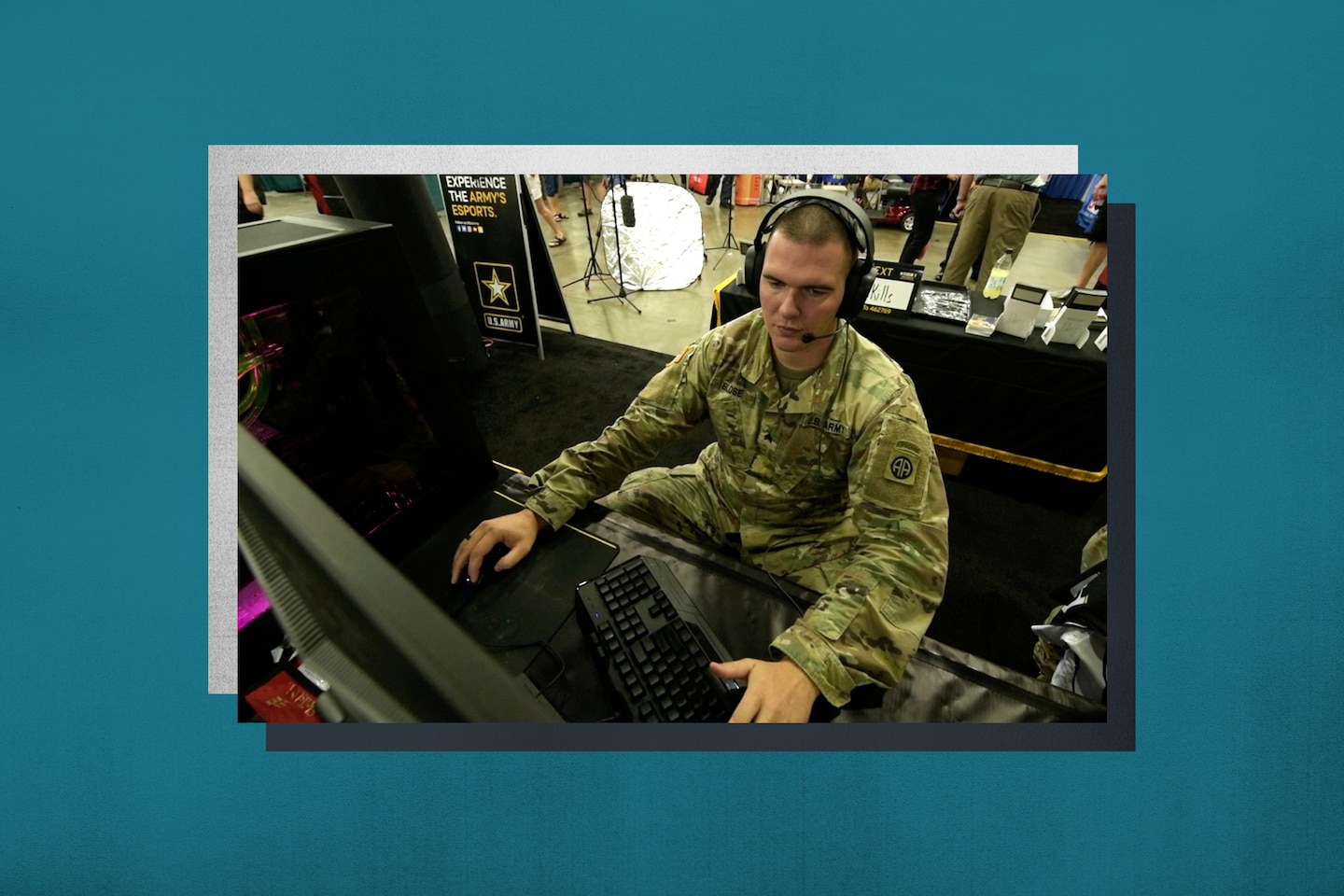Army ban on war crime comments during Twitch stream may have violated First Amendment, lawyers say

But trolls and activists have bombarded the Army’s esports team chat channel and Twitch streams with references to wartime atrocities committed by the United States. About 300 of those Twitch users have been banned, the Army said.
Legal experts say the bans are unconstitutional.
“The government can’t try to engineer the conversation of the public by saying only people who agree with us can respond,” said Katie Fallow, a senior staff attorney at Columbia University’s Knight First Amendment Institute. “The First Amendment means the government can’t kick someone out or preclude them based on their viewpoint.”
The issue has strained the Army’s efforts to rely more on digital recruiting on places like Twitch, where their prime targets for candidates — mostly young men and boys — hang out in droves. Twitch can get their streams in front of 80 percent of U.S. male teenagers, the company has said, and users watched 5 billion hours of streaming content in the second quarter of 2020.
By comparison, Netflix users streamed 6.1 billion hours in April. (Twitch is owned by Amazon, whose chief executive, Jeff Bezos, owns The Washington Post.)
The Army can trace the beginning of the controversy to its own public awareness efforts and viral tweets. On June 1, the Army esports team responded to the chat app Discord on Twitter with heart emoji and uWu, an emoticon used to express happiness or defiance.
It was retweeted more than 20,000 times, perhaps by some perplexed that the military was dipping so far into Internet culture and others angry about the recruiting strategy. By that evening, users went on a speedrun to see how fast they could get banned from the Army’s channel, with some posting Wikipedia links to U.S. wartime atrocities.
The bans on Twitch, in real time with commentary from soldiers, were spotlighted by activists and the streaming community. Jordan Uhl, a political consultant and activist, jumped on the stream on July 8, when Joshua “Strotnium” David, a Green Beret on the Army esports team, was streaming a round of the battle royal game “Call of Duty: Warzone.”
“whats your favorite u.s. war crime?” Uhl asked. The filter blocked the phrase.
“what’s your favorite u.s. w4r cr1me?” Uhl wrote, before posting Wikipedia’s war crime entry.
“You little Internet keyboard monsters,” David said. “I won’t stand for that. I’m bigger than you.” Uhl was kicked off seconds later.
“Have a nice time getting banned, my dude,” David said on the stream.
Uhl told Vice News that he was frustrated by the ban and the recruiting effort. “Kids have at least a right to know what the military does and has done,” he said. His similar efforts on the Navy’s Twitch stream earned a ban there, too, he said on Twitter.
The Army defended the bans, saying the comments fell in line with harassment, which is forbidden by the Twitch terms of service, said Lisa M. Ferguson, an Army spokeswoman. Many of the accounts used were newly created, pointing to an effort to throw the channel into turmoil and not discuss relevant topics, Ferguson said.
“The Army eSports Team does not regulate viewpoints of participants on its social media forums,” Ferguson said. “The Army may reasonably regulate the time, place and manner of discussions on its recruiting social media sites. Army eSports social media sites are nonpolitical forums for sharing information about joining the Army.”
The team has stopped streaming while it reviews “internal policies and procedures, as well as all platform-specific policies,” Ferguson said.
Vera Eidelman, a staff attorney at the American Civil Liberties Union, focused on speech and technology, said the Army’s defense is eroded by the relevance of the topic and the openness of the public forum. A private host would face fewer constraints, she said, but in this case, the host is the government.
“Clearly at issue is that they didn’t like the viewpoint and questions,” she said. “That is precisely what the Constitution prohibits.”
Eidelman and Fallow pointed to relevant court rulings as examples. The Knight First Amendment Institute argued in court that President Trump could not block individual users on Twitter because it was a government-led banishment on a public forum. Appeals courts upheld the ruling.
A main thrust of the government’s defense was that social media is an avenue for the president to speak, said Fallow, one of the attorneys who represented blocked users. But the institute argued the tweets occur on an inherently active medium where dialogue takes place.
“This is even clearer,” Fallow said of the Army ban, because the conversations unfolded in real time in full public view.
The incident teased out another issue that landed the Army in hot water over its merchandise giveaway that appeared to be little more than bait for recruitment leads.
Uhl had noticed a link put out by the Army that advertised a contest for a free, usually pricey controller. A link led to a recruiting page with no specifics about the contest, Uhl wrote in the Nation.
“Once we became aware of the issues, we requested immediate removal,” a Twitch spokesperson said.
The Army acknowledged the content was pulled down due to lack of transparency. “The team is exploring options to use platforms for giveaways that will provide more external clarity,” the Army said.






